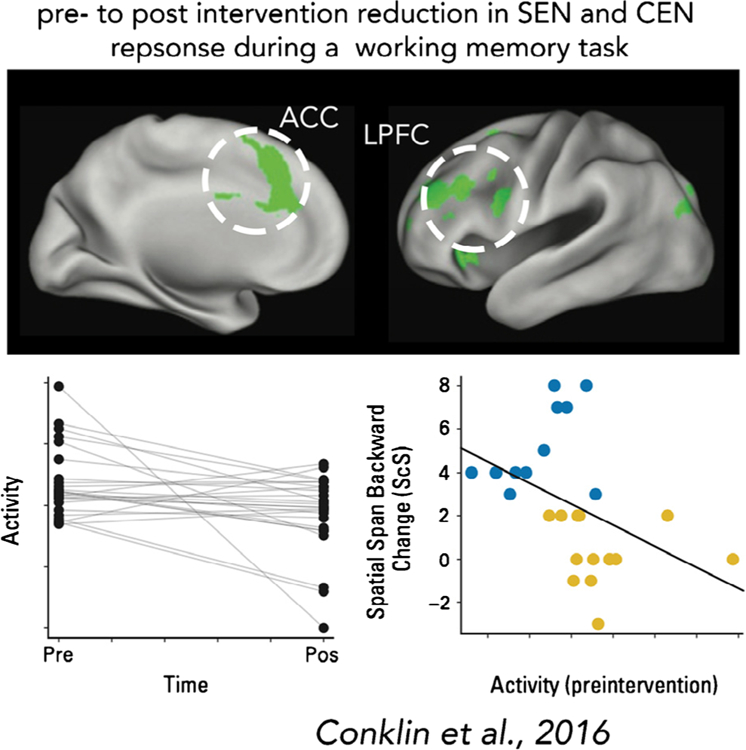Fig. 4.

Function of the salience and emotion network (SEN) and other large-scale neurocognitive networks represent key targets for psychosocial and behavioral interventions. 30 survivors of ALL or brain tumor who completed a 25-week computerized cognitive training intervention exhibited increased behavioral performance in several cognitive domains (Conklin et al. 2016). This improvement in behavioral performance was accompanied by a pre- to post-intervention reduction in SEN (anterior cingulate cortex, ACC) and CEN (lateral prefrontal cortex, LPFC) activity during a working memory task (top and bottom left panels). Additionally, lower pre-intervention activity in CEN (dorsolateral prefrontal cortex) during a working memory task predicted positive treatment response, i.e., greater positive change in working memory performance (i.e., spatial span backward; bottom right panel). Abbreviations: ALL, acute lymphoblastic leukemia; CEN, central executive network; SEN, salience and emotion network
